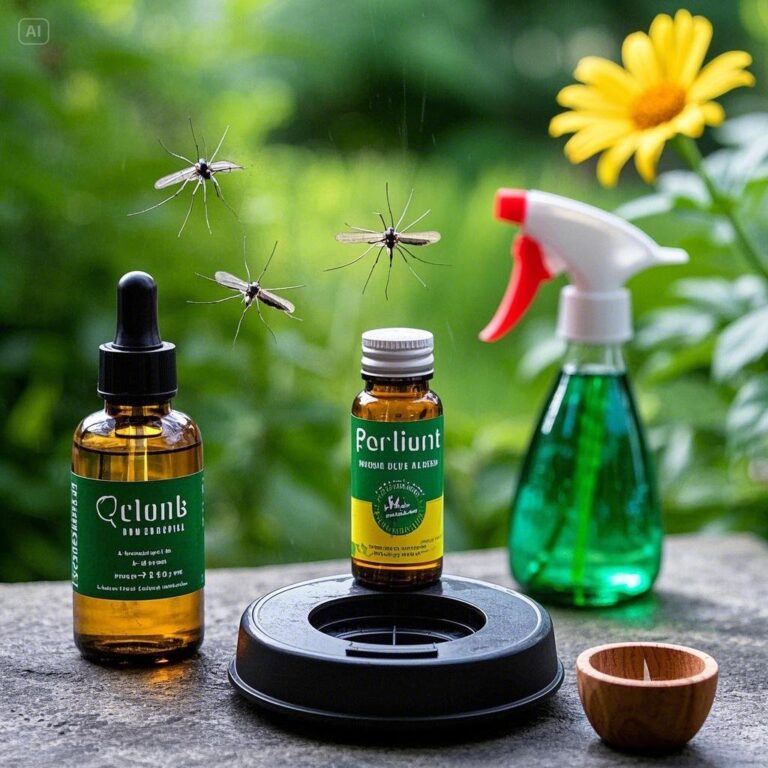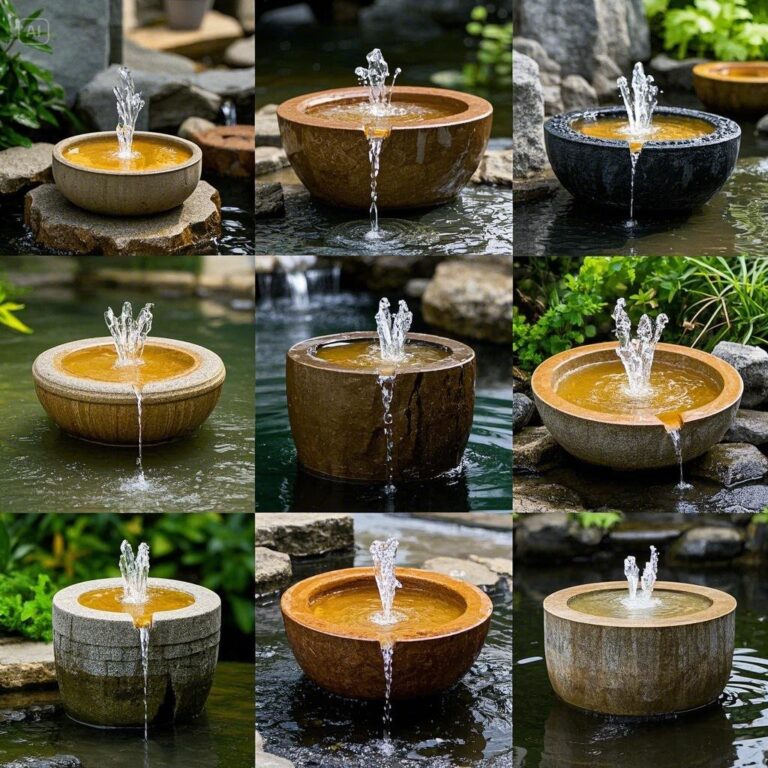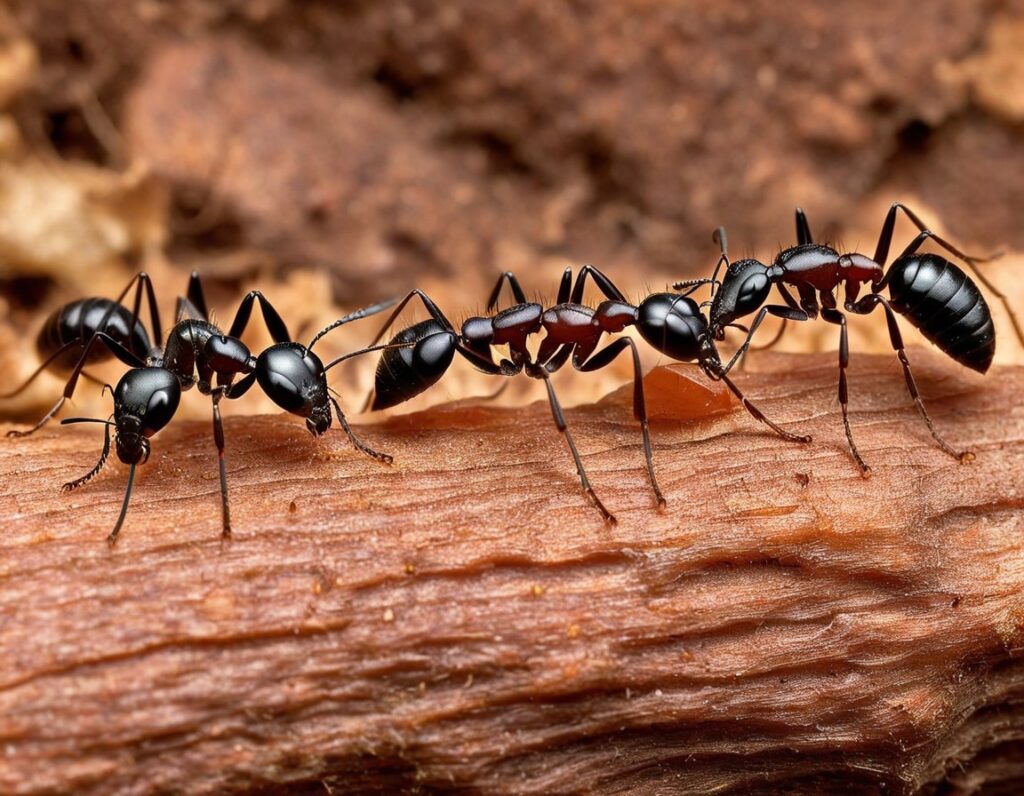
Dealing with ants can be a frustrating experience, but with the right strategies, you can effectively eliminate these pests and prevent future infestations.
The key to successful ant control is to target the queen, as removing her will eventually collapse the colony. Here are eight comprehensive methods to help you get rid of ants for good.
1. Identify The Ants’ Entry Point
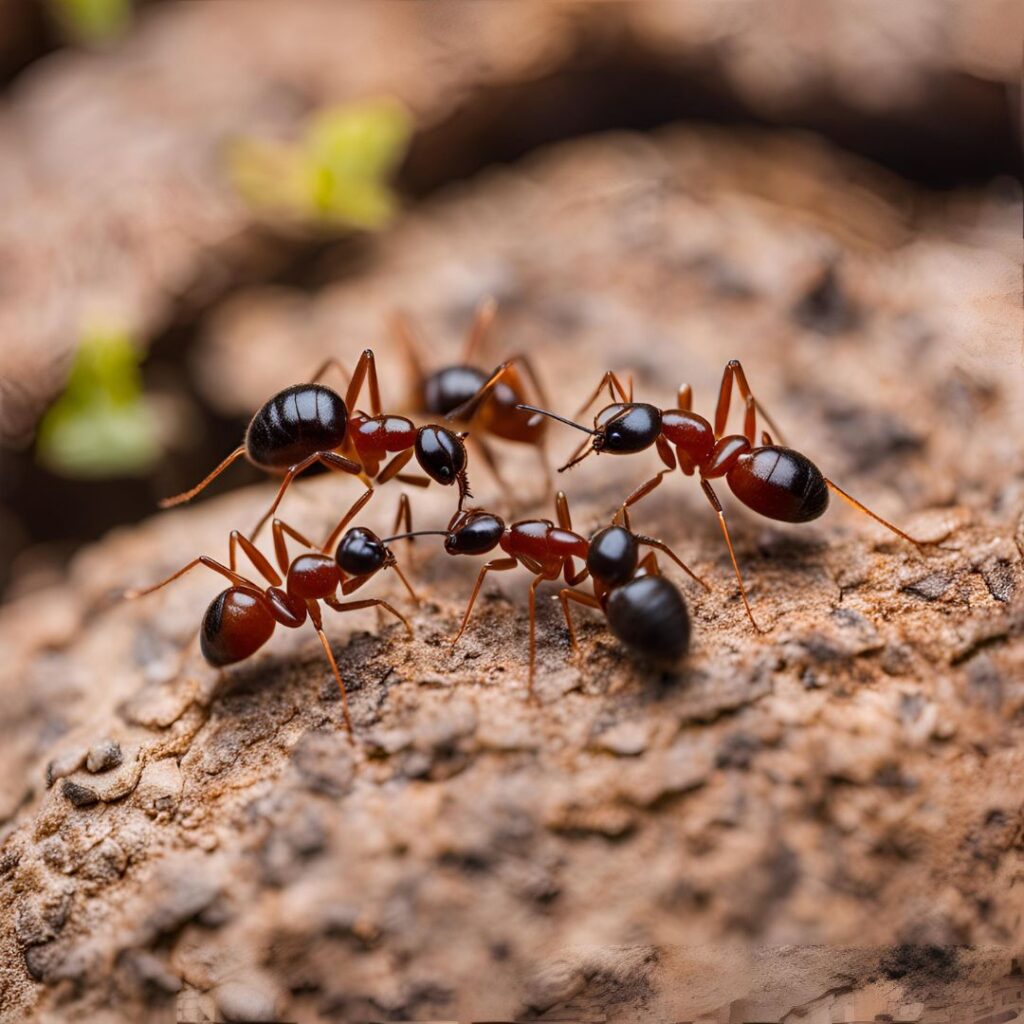
The first step in ant control is to locate their entry points. Ants can enter through the tiniest cracks and holes, so a thorough inspection of your home’s exterior is essential.
Once you identify these entry points, seal them with caulk or weather stripping to prevent further access. Regularly check and maintain these seals to keep your home ant-free.
Identifying and blocking entry points not only stops current invasions but also prevents future ones.
This proactive approach is crucial in keeping ants out of your living spaces, ensuring a more permanent solution to the problem.
2. Create Homemade Ant Repellents
Natural, homemade repellents can be just as effective as commercial products. Here are some DIY solutions:

- Lemon Juice: Mix equal parts lemon juice and water in a spray bottle. Spray the mixture around entry points and other areas where you’ve seen ants. The acidic nature of lemon juice disrupts ants’ scent trails.
- White Vinegar: Similar to lemon juice, mix equal parts vinegar and water in a spray bottle. Spray on ant trails and entry points. The strong smell of vinegar deters ants and removes their scent trails.
- Essential Oils: Peppermint, tea tree, and eucalyptus oils are excellent ant repellents. Mix 10-15 drops of essential oil with a cup of water in a spray bottle and apply it to affected areas.
- Cinnamon and Coffee Grounds: Sprinkle ground cinnamon or used coffee grounds around entry points to repel ants.
These natural methods are safe for use around pets and children and can be very effective when used consistently.
3. Use Store-Bought Ant Repellents
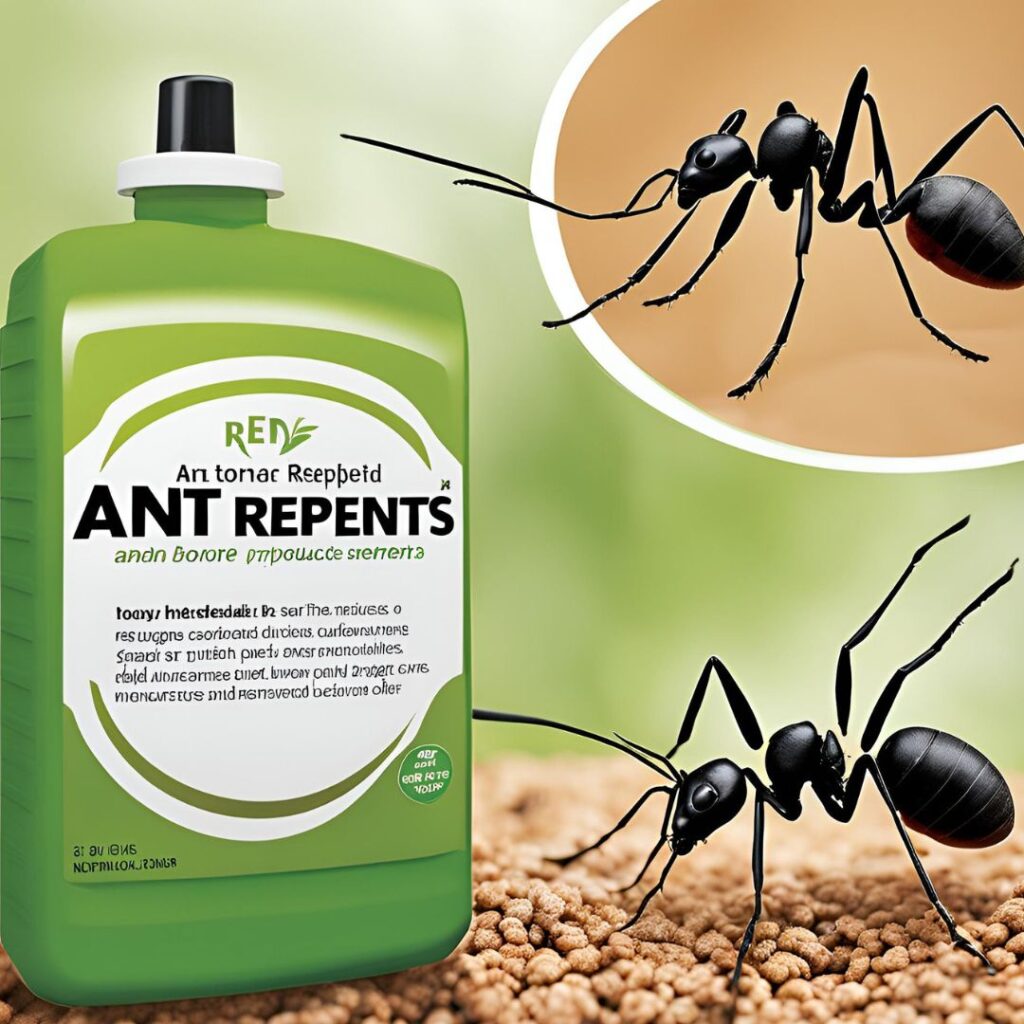
Commercial ant repellents are formulated to disrupt ants’ ability to communicate, leading to disarray in their colonies.
Look for products with natural and non-toxic ingredients to ensure they are safe for use in your home. Many store-bought repellents use essential oils or other natural deterrents to keep ants at bay.
Be sure to follow the instructions carefully for the best results. Some popular options include ant baits, which attract ants with food and then poison them, effectively reducing the colony size over time.
Regular application and monitoring can help maintain an ant-free environment in your home.
4. Maintain A Clean Environment
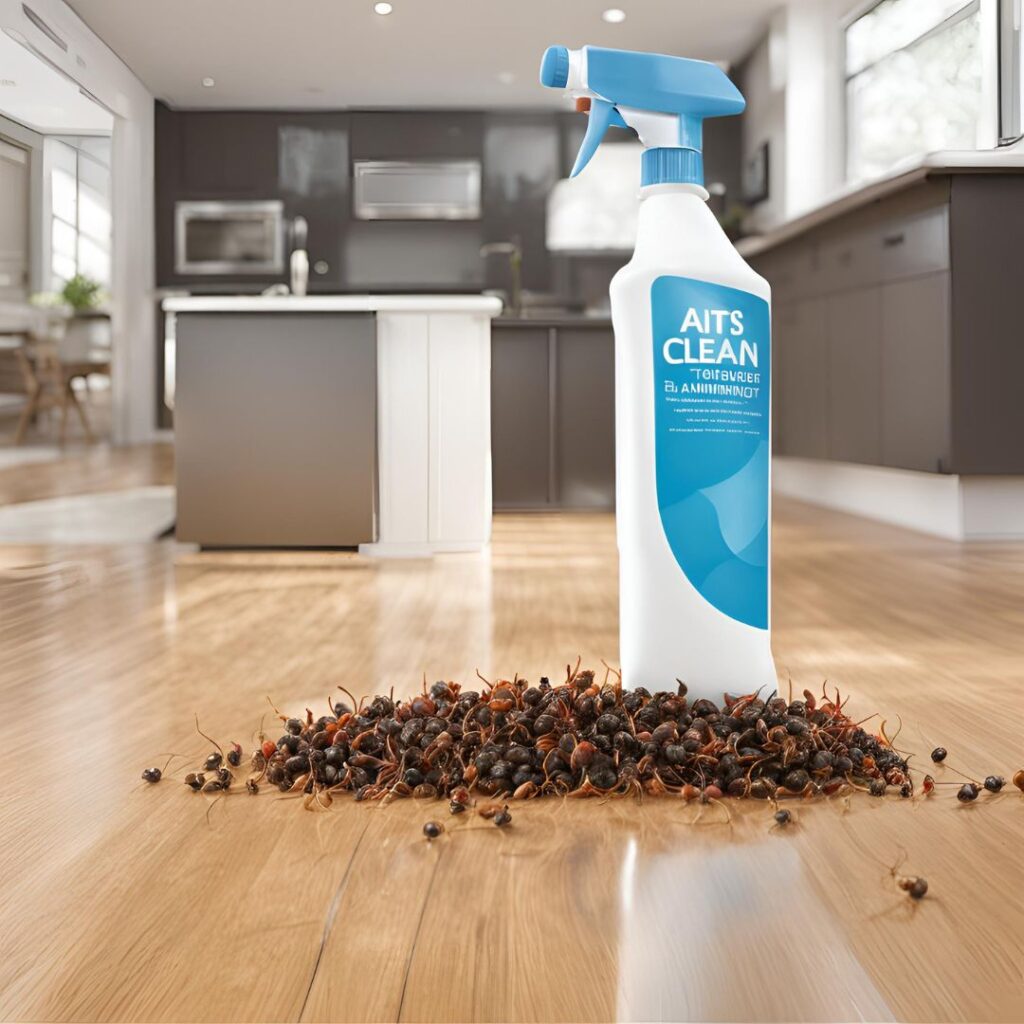
Ants are attracted to food and water sources, so maintaining a clean home is essential in preventing infestations.
Ensure that all food is stored in airtight containers, and promptly clean up any spills or crumbs. Regularly wipe down countertops, sweep floors, and take out the trash to eliminate potential food sources.
Pay special attention to areas like the kitchen and dining room where food is frequently present.
Additionally, make sure pet food is stored properly and not left out overnight.
By removing these attractants, you make your home less appealing to ants and reduce the likelihood of them entering in the first place.
5. Utilize Ant Baits
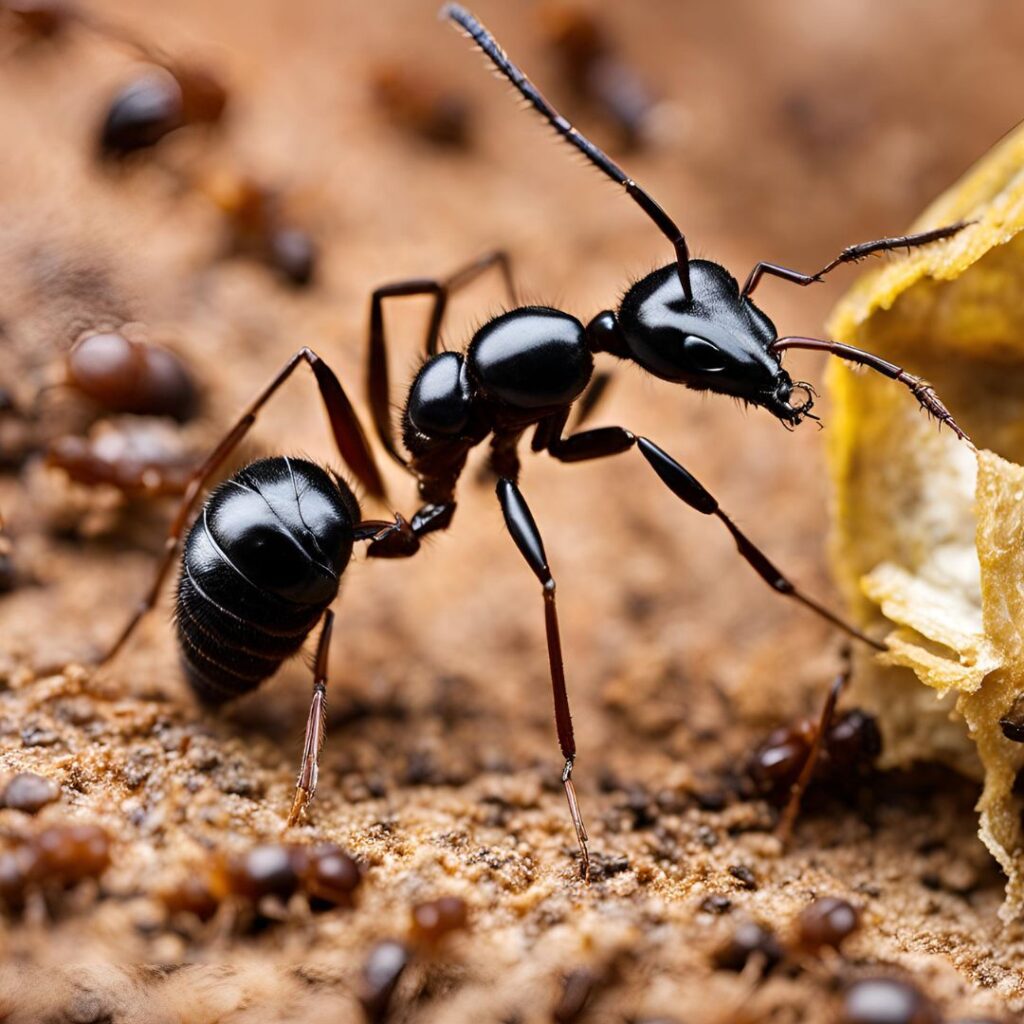
Ant baits are an effective way to eliminate ants at their source. The bait consists of a mixture of food and a slow-acting insecticide.
Ants are attracted to the bait, consume it, and then return to their colony, where they share the poison with other ants, including the queen.
This method ensures that the entire colony is affected. Place ant baits near entry points and along ant trails. Be patient, as it may take a few days to see results.
Keep ant baits out of reach of children and pets to ensure their safety. Regular monitoring and replacement of baits will help maintain control over the ant population.
6. Use A Vacuum To Remove Ants
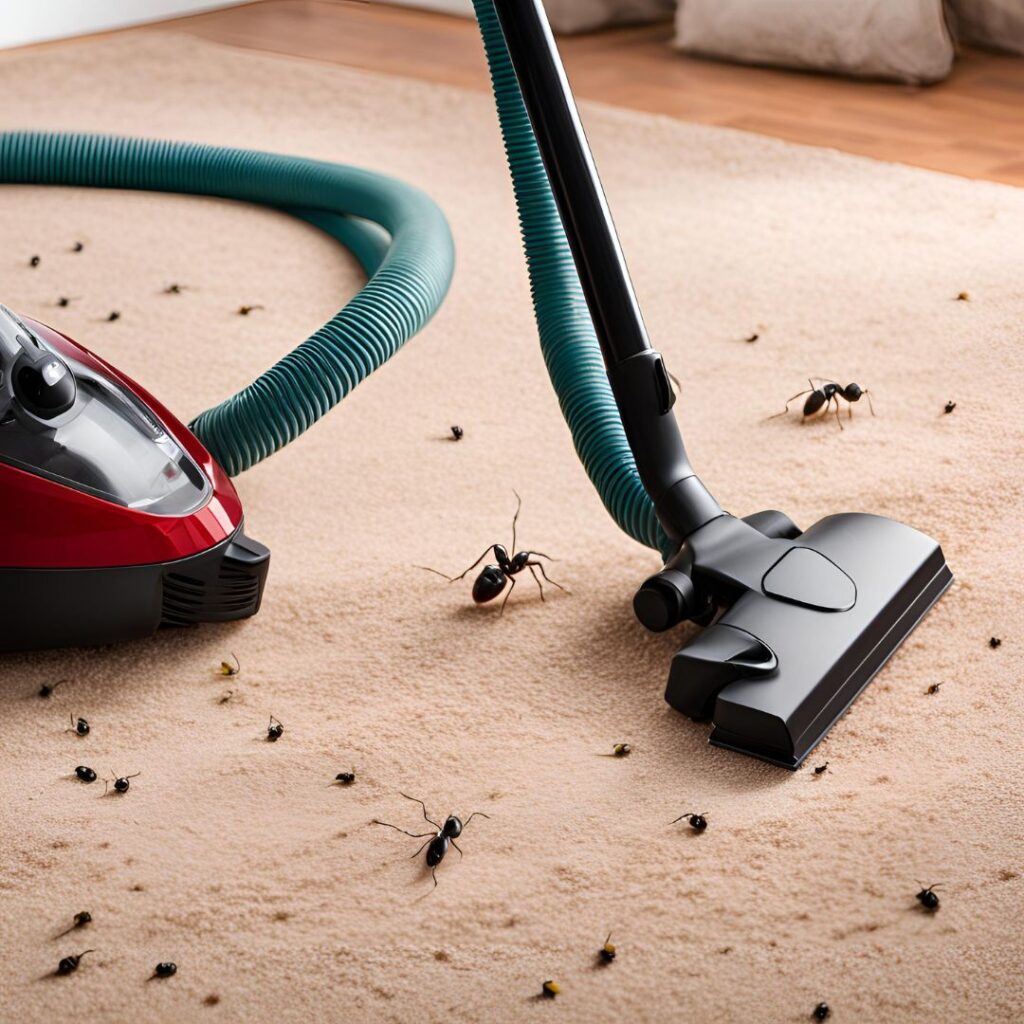
If you encounter a large number of ants in your home, using a vacuum can be an effective immediate solution. Attach the hose to your vacuum cleaner and suck up the ants.
Once you’ve collected them, empty the vacuum bag or canister into a sealed trash bag and dispose of it outside.
This method provides quick relief from large numbers of ants but should be followed up with other long-term control strategies to prevent their return.
Regularly vacuuming high-traffic areas can also help manage ant populations and reduce their presence in your home.
7. Call A Pest Control Professional
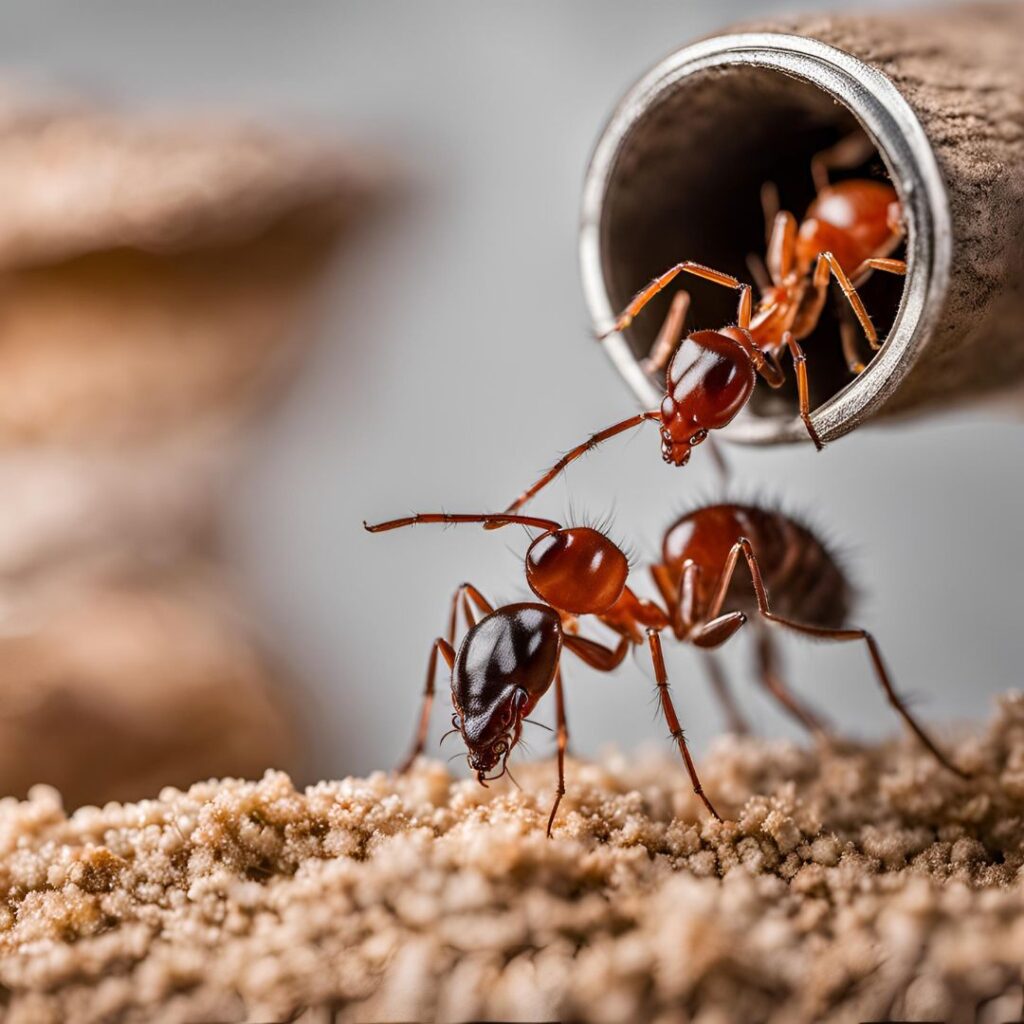
If you’ve tried multiple methods and still have an ant problem, it may be time to call a pest control professional.
Professionals can identify the specific type of ant you’re dealing with and develop a targeted treatment plan. They have access to more potent insecticides and tools that are not available to the general public.
Additionally, they can provide advice on preventing future infestations. A professional service can be particularly useful for large or persistent ant problems, ensuring a thorough and lasting solution.
Regular maintenance visits can also help keep your home ant-free in the long term.
8. Seal Cracks And Crevices
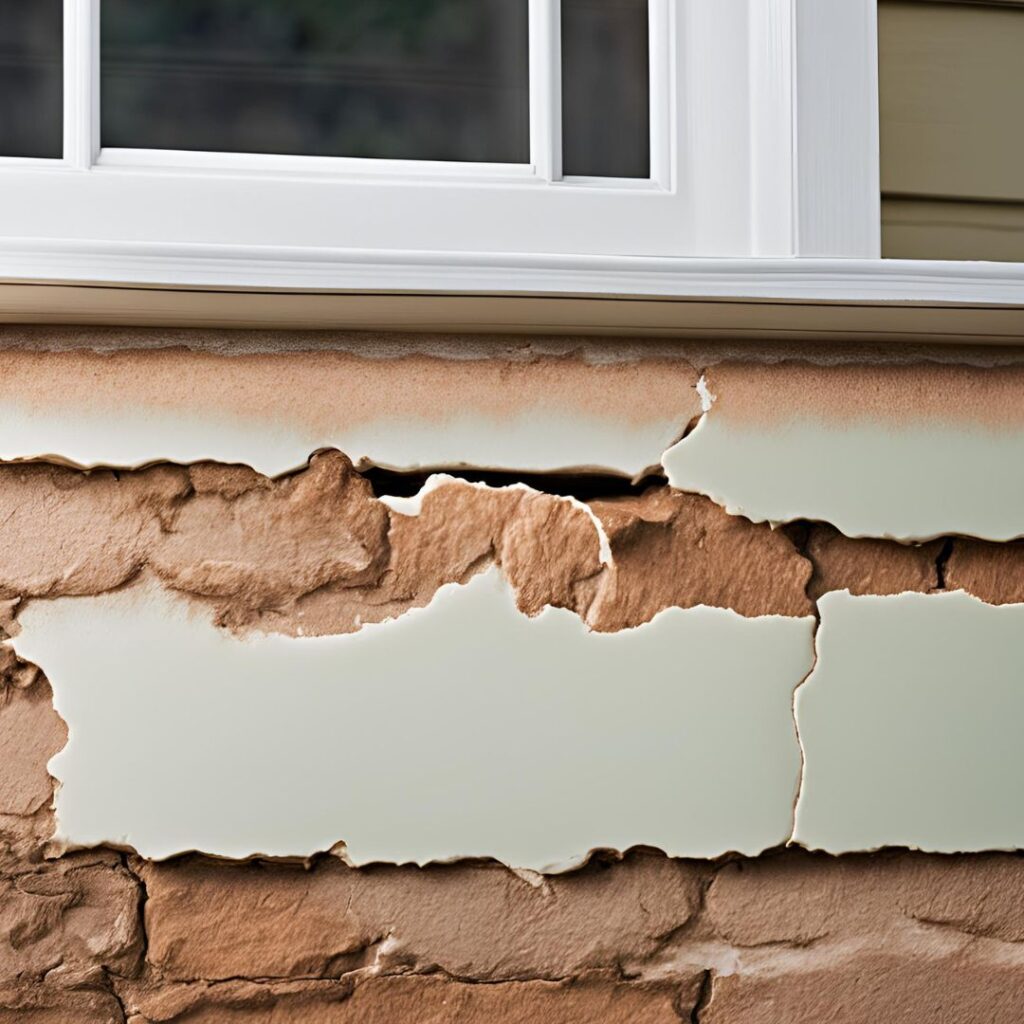
To prevent ants from entering your home, it’s crucial to seal any cracks or crevices that they could use as entry points. Inspect your home’s exterior, including the foundation, windows, and doors, for any gaps.
Use caulk to seal small cracks and weather stripping for larger gaps. Pay attention to areas where utility lines enter your home, as these are common entry points for ants.
By regularly inspecting and maintaining these seals, you can effectively reduce the chances of ants finding a way into your home. This proactive measure is key to long-term ant prevention.
Incredible Plants That Will Keep Bugs Out Of Your Home
Plants with Hydrangeas Ideas
Diy Cucumber Trellis Easy? 20 Ideas
20 Amazing Landscape Design Ideas
15+ Incredible Planter Arrangements Ideas
Conclusion
Eliminating ants requires a combination of strategies to be effective.
By identifying entry points, using natural and commercial repellents, maintaining a clean environment, and seeking professional help when needed, you can achieve a long-term solution to your ant problem.
Consistency and persistence are key in keeping your home ant-free.

